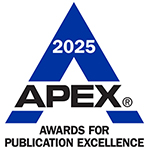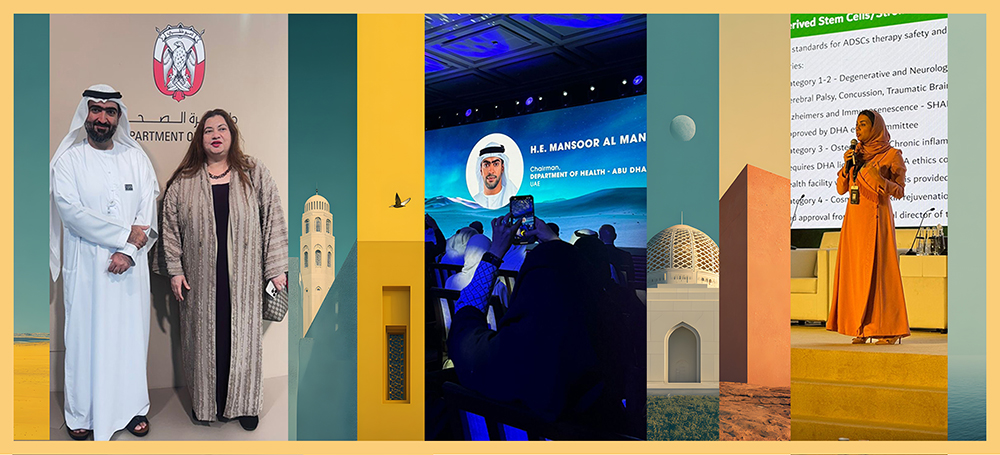
As medical tourism and clinical trials in cell and gene therapy gain traction across the Middle East, accreditation is becoming increasingly important to ensure safe, effective and high-quality systems. Many institutions and facilities in the Gulf Cooperation Council (GCC), particularly in the United Arab Emirates and Saudi Arabia, are actively pursuing AABB accreditation in the field of biotherapies and regenerative medicine. Regarded as a global mark of excellence, AABB accreditation promotes the highest standards of quality and safety for blood and biotherapies facilities, offering value through on-site assessments and peer-to-peer evaluations.
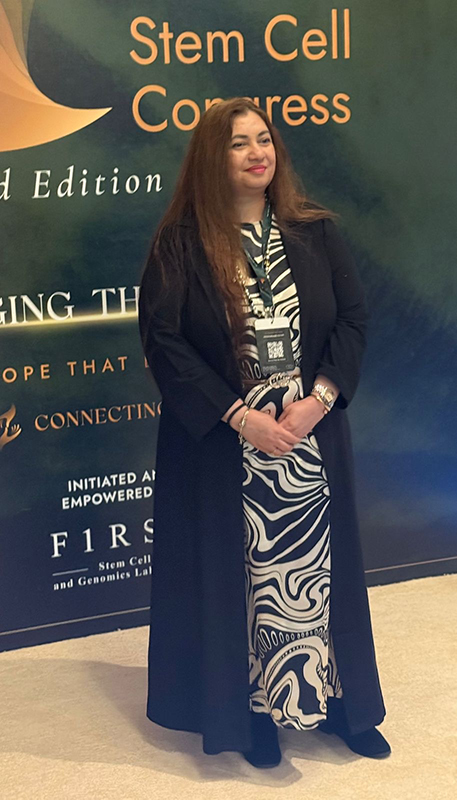
Asawari (Asa) Bapat, MBBS, DPB, PGDHHM, CABP(H), an AABB consultant and global expert in clinical and medical affairs and an AABB ambassador in the Middle East, spoke to AABB News about the international credibility of AABB accreditation and why it is becoming increasingly important for facilities throughout the GCC. For nearly two decades, Bapat has worked tirelessly to advance AABB’s mission across the Middle East and North Africa (MENA) region, Asia and global platforms. In 2007, she spearheaded the integration of AABB accreditation into India’s regulatory framework, paving the way for its adoption across the Middle East the following year. She expressed excitement about the growing momentum happening across the region.
“AABB-accredited facilities now help to support a significant volume of biotherapy-related products entering and leaving the MENA region,” Bapat said. “This is a huge step in the right direction.”
In the UAE, Emirati facilities are required to obtain international accreditation in their respective fields – making AABB accreditation all the more important here.
“AABB accreditation is considered the gold standard for blood and biotherapies in general. Initially, only certain accreditations were accepted, so it took some time to gain recognition in the UAE,” Bapat said. “But after about three years of AABB engagement, the UAE now recognizes AABB as an essential accreditation, especially for blood banks, relationship testing facilities and biobanks.”
The UAE is rapidly emerging as a regional hub for medical tourism, attracting patients from abroad due to its advanced medical facilities and strengthened infrastructure. Bapat discussed how AABB accreditation has helped UAE facilities gain a competitive edge in clinical trials and medical tourism -- particularly government-run facilities like the Dubai Cord Blood Research Center and the Al Jalila Foundation, which supports medical treatment for individuals unable to afford quality health and advances biomedical research.
“These institutions are receiving many medical tourists, including children, from Gaza, Sudan and other war-stricken areas,” Bapat told AABB News. “Many of the biobanks and cord blood banks in the UAE are AABB-accredited, so they’re able to supply high-quality products to the affected areas in crisis situations, while bringing in vulnerable patients from those conflicted areas to receive care in UAE hospitals. Accreditation creates a sense of trust across the board.”
In 2025, Abu Dhabi Stem Cells Center (ADSCC) and Yas Clinic earned AABB accreditation for hematopoietic progenitor cell collection, becoming the first health care institutions in the UAE, and the second in the entire MENA region, to receive this achievement. ADSCC, the first institution in the UAE to manufacture CAR-T cells since 2023, now provides advanced therapies locally, reducing the need for patients to travel abroad.1
“AABB accreditation becomes a very strong tool. Everyone involved—from medical staff to patients—knows that a standardized process is in place to ensure that the right blood reaches the right patient,” Bapat said. Accreditation also helps to minimize human error and ensures high-quality care.
“During the AABB accreditation process, your peers are the ones inspecting your site,” she added. “The robust on-site inspection gives both patients and regulators greater confidence in your facility’s operations and quality management system while helping you develop confidence in your processes. The value extends beyond local regulatory bodies.”
“AABB’s global recognition fosters trust across diverse populations. Patients know they're receiving high-quality care, no matter where they are from.”
In addition, accreditation has helped improve patient access in the region by promoting safe practices and ensuring staff competency and patient safety. Bapat noted she’s witnessed patients respond positively after discovering that a facility has international accreditation, as it provides external validation and demonstrates a commitment to quality.
“It reassures them that the blood is safe and high quality, giving them confidence in their treatment and surgery,” she said. “In a diverse country like the UAE, there are more than 140 nationalities represented. AABB’s global recognition fosters trust across diverse populations. Patients know they're receiving high-quality care, no matter where they are from.”
There has been a significant growth of cord blood banks in the UAE within a short period—four from established companies and two from new entities.2 FamiCord Group’s Dubai laboratory received AABB accreditation in June 2025, just one year after opening, becoming one of the few AABB-accredited cord blood banks in UAE’s evolving market.3
Bapat discussed the progress of cord blood banks in the UAE and their contributions to biotherapy innovation through research and development partnerships with universities. As an example, Khalifa University in the UAE is researching how to repurpose biohazard waste like placenta and birth tissue to develop new products for residents—an ongoing project that is expected to lead to clinical trials in the future.
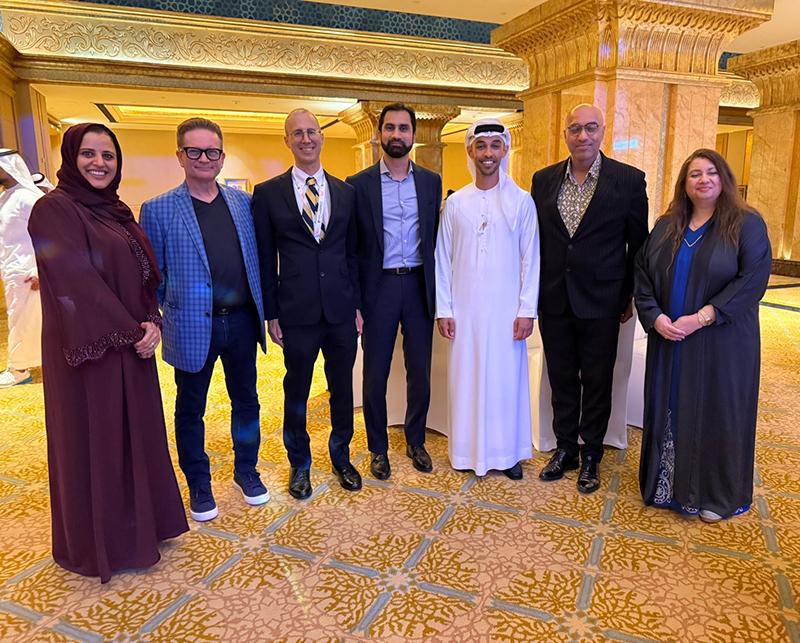
Bapat explained that research and development facilities, including universities and good laboratory practice labs, often conduct research independently, but with accreditation, their processes meet international standards, which increases the credibility of their findings. This alignment with accreditation bodies also enables collaboration with international research institutions, advancing innovation and clinical development across the region.
“These initiatives, along with others like the Al Jalila Foundation, which supports organ transplants—a rapidly growing field in the UAE—are important developments,” Bapat said. “There’s a strong tie between accreditation, research and product quality.”
The UAE is positioning itself as a global leader in advanced therapies. In 2023, the country's cell and gene therapy CDMO market generated a revenue of $18.7 million and is expected to reach $70.8 million by 2030.4 The UAE’s 2030 Vision strategic plan aims to ensure an advanced, integrated and accessible health care system that focuses on enhancing the quality of life of individuals.5 Medical advancements and cutting-edge technologies continue to revolutionize transfusion medicine and biotherapies across the region and beyond.
Earlier this year, the Emirates Drug Establishment (EDE) signed a memorandum of understanding with the Ministry of Investment to strengthen and advance the UAE’s pharmaceutical sector, aiming to establish the UAE as a global hub for pharmaceutical innovation.6 The EDE will be responsible for preparing an integrated national framework for pharmaceutical research, clinical and non-clinical studies and trials in accordance with the best international standards and practices. 7
With more cell and gene therapies emerging, Bapat is confident that medical facilities and institutions will pursue AABB accreditation.
“The UAE leadership promotes quality-based health care, and key bodies like the Abu Dhabi Department of Health, Dubai Health Authority and EDE are actively implementing this vision through clear regulations and guidance,” Bapat said.
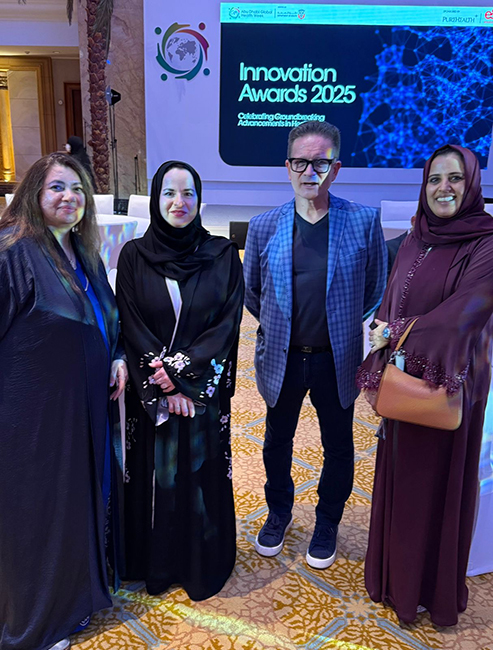
Bapat, a global expert for clinical trials in the field of regenerative medicine, emphasized the importance of standardized regulations for companies conducting clinical trials in the UAE and noted that accreditation helps unify varying standards across facilities, whether they follow European Union, United States or other international regulations. Most clinical trials in the region now require accreditation, especially AABB accreditation for anything involving blood and biotherapies, she pointed out.
“Quality managers and directors often come from diverse regulatory backgrounds. Accreditation goes beyond local directives and creates standardized processes that are easy to understand and implement, which is crucial for clinical trials,” Bapat explained. “Many American companies, for example, may have ISO or GMP certification but lack AABB accreditation. The AABB Standards cover a broad range of quality system essentials, from product collection to administration and patient follow-up.”
For clinical trials, having accredited systems ensures consistency in data collection, processing and reporting. Moreover, accredited staff are trained to identify and escalate errors appropriately, which is crucial for successful clinical trials.
“You need confidence in how samples were collected, processed and administered. Variables like cell dose matter, and accreditation ensures these details are properly documented and controlled,” Bapat said. “AABB accreditation gives international companies the confidence to conduct trials in the Middle East, knowing the standards are aligned with global expectations.”
BACK TO ISSUE
August 2025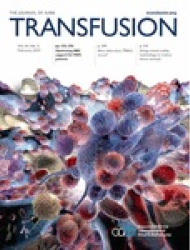
Transfusion is AABB’s scholarly, peer-reviewed monthly journal, publishing the latest on technological advances, clinical research and controversial issues related to transfusion medicine, blood banking, biotherapies and tissue transplantation. Access of Transfusion is free to all AABB members.
Learn More About Transfusion Journal
Keep abreast of what's happening in the field of biotherapies with CellSource - AABB's monthly update on the latest biotherapies news.
To submit news about the blood and biotherapies field to AABB, please email news@aabb.org.
President
Meghan Delaney, DO, MPH
Chief Executive Officer
Debra Ben Avram, FASAE, CAE
Chief Communications and Engagement Officer
Julia Zimmerman
Director of Marketing and Communications
Jay Lewis, MPH
Managing Editor
Kendra Y. Mims, MFA
Senior Communications Manager
Drew Case
AABB News
(ISSN 1523939X) is published monthly, except for the combined November/December issue for the members of AABB; 4550 Montgomery Avenue; Suite 700 North Tower; Bethesda, MD 20814.
AABB is an international, not-for-profit association representing individuals and institutions involved in transfusion medicine, cellular therapies and patient blood management. The association is committed to improving health by developing and delivering standards, accreditation and educational programs that focus on optimizing patient and donor care and safety.
+1.301.907.6977
Email: news@aabb.org
Website: www.aabb.org
Copyright 2025 by AABB.
Views and opinions expressed in AABB News are not necessarily endorsed by AABB unless expressly stated.
Notice to Copiers: Reproduction in whole or part is strictly prohibited unless written permission has been granted by the publisher. AABB members need not obtain prior permission if proper credit is given.
